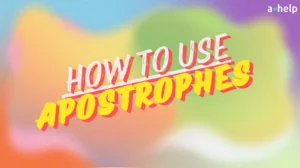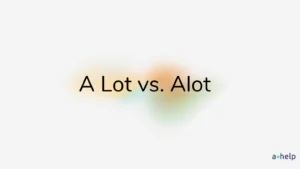Compound words are language elemts, formed by combining two or more words to create a new meaning. In English, compound words can be found everywhere, from everyday conversations to complex academic texts. They come in different types, including closed compounds, hyphenated compounds, and open compounds. In this guide, we will explain the topic of compound words, their formation, and their role in effective communication.

✅ AI Essay Writer ✅ AI Detector ✅ Plagchecker ✅ Paraphraser
✅ Summarizer ✅ Citation Generator
Types of Compound Words: Open, Closed, or Hyphenated
Compound words are formed when two or more words are combined to create a new one with a different meaning. These come in three main types: closed, hyphenated, and open. You can easily check them with a spelling and punctuation checker.
Closed Compound Words
These words are written as a single word without any spaces or hyphens. They often evolve from open compound words as they become more commonly used. For example, “notebook” (from “note” and “book”) and “sunflower” (from “sun” and “flower”) are closed compound words.
Other common examples:
- Toothbrush
- Keyboard
- Basketball
- Bookstore
- Raincoat
- Classroom
- Firefighter
- Cupcake
- Earthquake
- Haircut
Hyphenated Compound Words
These words are connected by a hyphen, which helps to clarify their meaning and avoid confusion. Examples include “mother-in-law” (a mother related by marriage) and “well-being” (a state of health and happiness).
Other common examples:
- Sister-in-law
- Long-term
- Editor-in-chief
- Six-pack
- Check-in
- Father-in-law
- Merry-go-round
- Up-to-date
- Well-known
- Part-time
Open Compound Words
These words are written as separate words, but together they form a single concept. For example, “ice cream” (a frozen dessert) and “high school” (a secondary school for older students) are open compound words.
- Full moon
- Post office
- Real estate
- Science fiction
- Living room
- Coffee table
- High school
- Ice cream
- Credit card
- Tennis court
Meaning and Usage in Context
The meaning of a compound word often relates to the meanings of the individual words, but it can also have its own unique sense and definition. For instance, a “goldfish” is a type of fish that is often gold in color. The context, or how the word is used, can also influence the formation of compound words. For example, “apple” and “pie” can combine to form “apple pie,” a dessert made with apples, but only in the context of food.
Exercises on Compound Words
After learning the basics, let’s try a few exercises to better remember the concept.
All in All
So, compound words are integral to the richness and versatility of language. They allow us to express complex ideas succinctly and add depth to our communication. As we continue use compound words, it’s important to appreciate the role they play in shaping our language. So, let’s pay attention to these linguistic building blocks and embrace the creativity they bring to our communication.
FAQ
Follow us on Reddit for more insights and updates.





Comments (0)
Welcome to A*Help comments!
We’re all about debate and discussion at A*Help.
We value the diverse opinions of users, so you may find points of view that you don’t agree with. And that’s cool. However, there are certain things we’re not OK with: attempts to manipulate our data in any way, for example, or the posting of discriminative, offensive, hateful, or disparaging material.